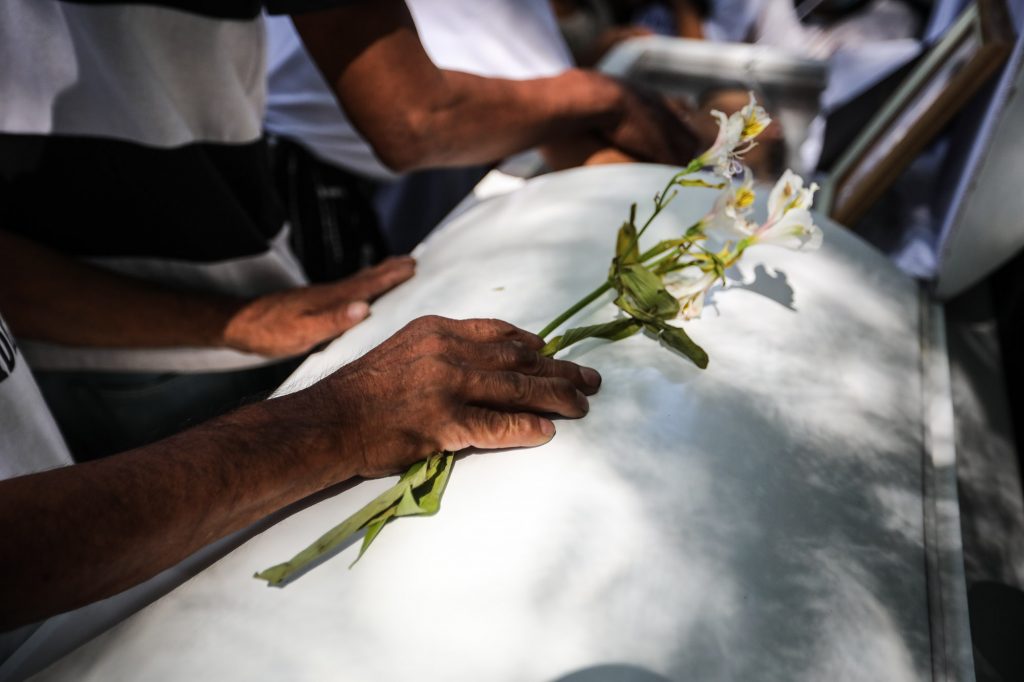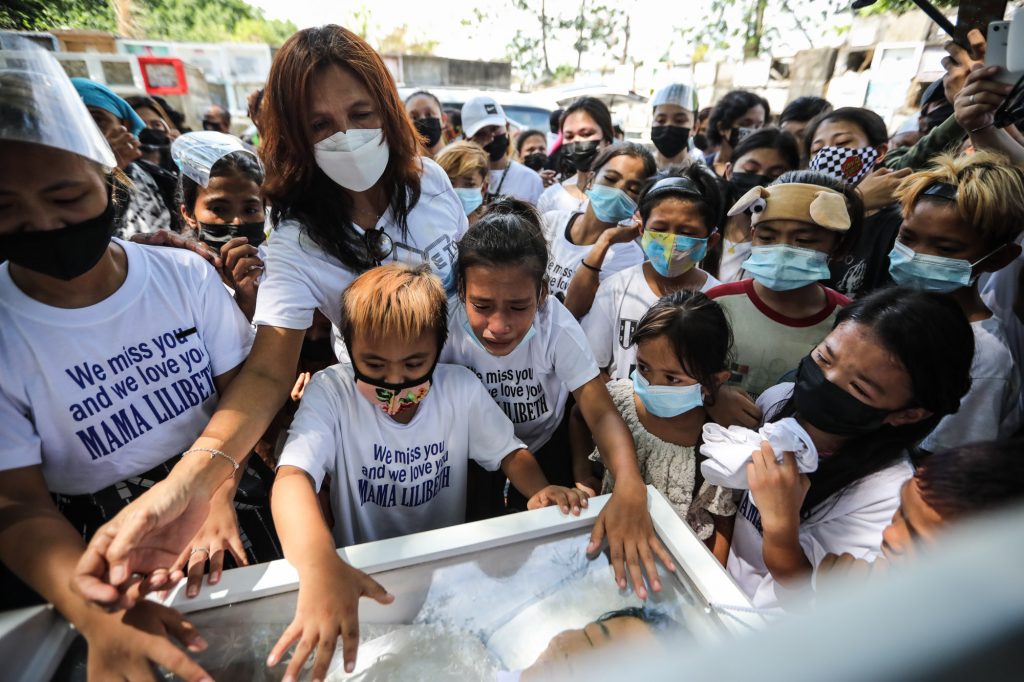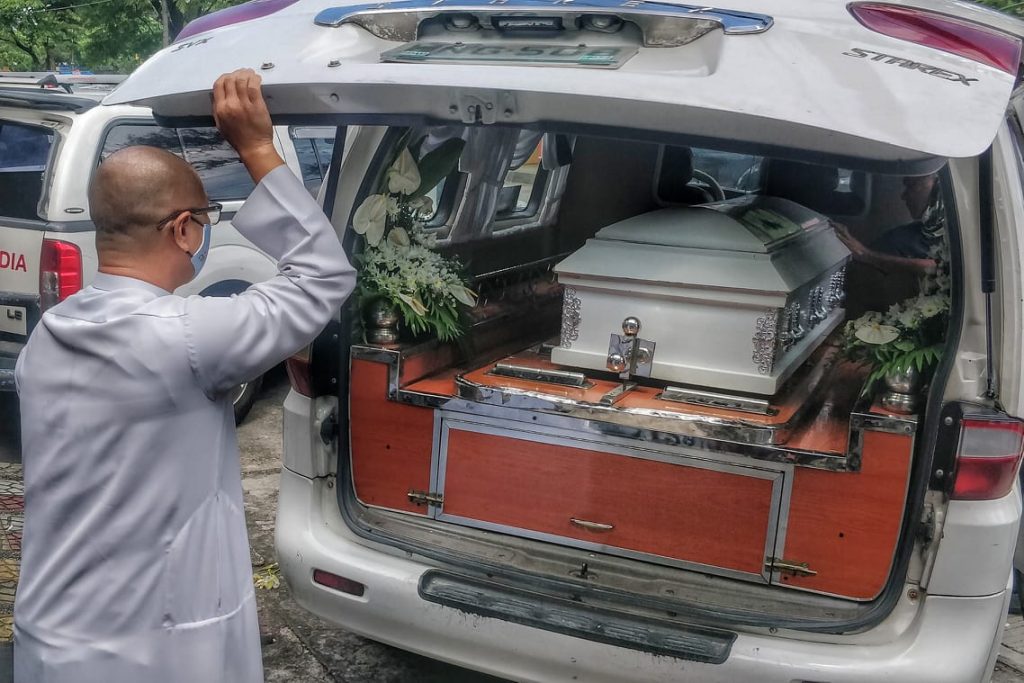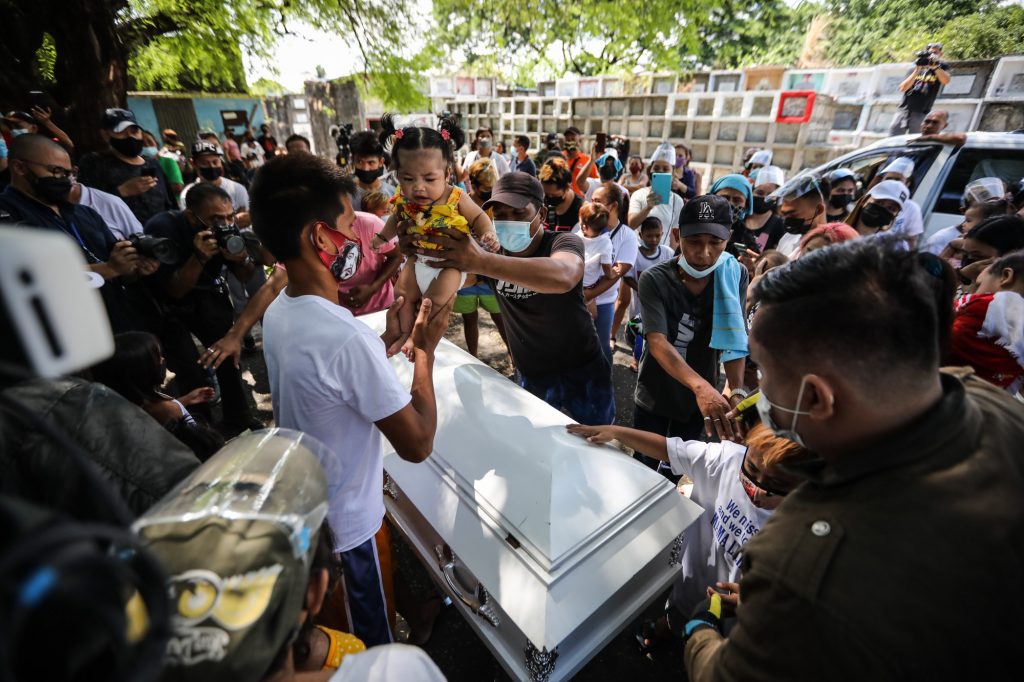
The body of Lilibeth Valdez, the 52-year-old woman who was killed by a police officer in the Philippine capital on May 31, was laid to rest in a public cemetery on Friday, June 4.
A funeral Mass was celebrated at the Good Shepherd Cathedral in Quezon City before Valdez’s remains were brought by relatives to the public cemetery in Bagbag district for burial.
The woman was shot by a drunken police master sergeant, identified as Hensie Zinampan, on Monday evening.
The killing once again put the spotlight on abusive police conduct in the Philippines, noted Human Rights Watch on Friday.
The rights group said the killing of Valdez, which was caught on video, was “disturbingly reminiscent” of the December 2020 police killing involving an off-duty police officer who shot dead a mother and her son in the province of Tarlac, north of Manila.
The Philippine National Police has vowed to hold accountable the suspect, with National Police chief Gen. Guillermo Eleazar promising justice and publicly berating Zinampan.
Various groups have linked the killing to the country’s “culture of impunity” that Human Rights Watch said has worsened in the past five years under President Rodrigo Duterte’s “war on drugs.”
Father Christian Buenafe, O.CARM, chairperson of the Task Force Detainees of the Philippines, condemned the killing, describing it as a “reflection of the culture of violence” that “emboldened police brutality and heightened impunity that blatantly worsens the situation of the people.”
The Task Force Detainees of the Philippines is a national Human Rights Defenders organization founded in 1974 by the Association of Major Religious Superiors in the Philippines.

The killing of Valdez came about a week after four policemen in Valenzuela City were relieved of duty after being accused of killing an 18-year-old autistic man during a May 23 raid.
“This calls for decisive action by the government,” said Father Buenafe, adding that the Philippine National Police “must reaffirm its commitment to serve and protect by ridding itself of hoodlums in uniform.”
The Philippine Alliance of Human Rights Advocates said the case of Valdez “is not an isolated one.”
The group also said it is “part” of the “culture of violence unleashed in 2016 through Duterte’s public kill and hate speeches and hard-lined directives to the policing sector.”
“It will take the president’s reversal of his pronouncements and his taking of responsibility for the transmorphing of police mindsets to see the beginning of cessation to the killings,” said the group.

Cristina Palabay, secretary general of human rights group Karapatan, said the killings “clearly display a governance driven by a kill-kill-kill policy that is fostering an environment of insecurity.”
“What is clear and apparent is that the dangerous mindset of normalizing such killings is deeply ingrained among state forces,” Palabay said.
Human Rights Watch said the police killings “underscore the need for police to wear body cameras with appropriate protocols during operations.”
“While cameras alone won’t stop police abuses, they bring a measure of transparency during police operations, particularly in drug raids where the [police] often claims, without evidence, that the victims fought back,” read a Human Rights Watch statement.
Police chief Eleazar announced on Friday that the police will finally be utilizing “body-worn cameras” to ensure transparency and legitimacy of police operations.”

Source: Licas Philippines
0 Comments